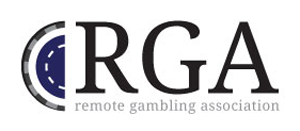RGA Proposes Regulation Guidelines

With offices in London and Brussels the Remote Gambling Association (RGA) is one Europe’s principal and most reputable operators.
Members that form part of RGA are software giants like Microgaming and Playtech and internet casinos such as Virgin Games. RGA aims to promote a regulated and unbiased environment for responsible licensed egaing sites.
Many European countries so far established the necessary regulatory mechanisms whilst others are thinking of it. Not only do these mechanisms differ but some of them are not in compliance with the European Union’s (EU) provisions.
To introduce its latest publication RGA used EiG expo recently held in Milan as a launch pad, a guide titled “Online Gambling: Key objectives for a successful regulatory and tax framework”. The publication stipulates key areas that governments and regulators must keep in mind when establishing the necessary framework for the internet gambling private sector.
RGA chief executive Clive Hawkswood said that it is imperative for governments who are thinking of legalizing and regulating private internet casinos within their jurisdictions. He said, “Our message to them is that working in partnership with responsible operators and building modern remote gambling regimes that balance consumer interests and commercial opportunities presents the greatest prospect for new remote frameworks to be successful from a social and fiscal perspective.”
“Online Gambling: Key objectives for a successful regulatory and tax framework” contains 16 pages with three main sections – Key regulatory objectives, Taxation and Remote gambling verticals. RGA outlines key objectives for a regulatory authority that provides fair and competitive internet gambling, that safeguards player interests across all spectrums, to promote a crime free environment and to guarantee that the products are beneficial and lucrative to internet players. The regulatory mechanism starts with legislation, it must be achievable. Additional issues that should be born in mind are product ranges, social responsibility, role of regulator, integrity of sport and nature of advertising. To establish the identity of the player RGA recommends the use of third party services.
The taxation section stipulates that revenue generation must be properly taxed a key area if countries want to legalize and regulate it. Authorities must be aware that the tax burden ultimately rests on the players and if the tax rate is too high it will compel players to wager at unlicensed operators. RGA says it’s better to tax sites on their gross profits since it is a more convenient taxation model.
The third section discusses the diverse product verticals, the way they are structured and how they produce revenues for internet casinos. The RGA publication says that for internet gambling, regulation is work in progress and not a fly by night endeavour. It’s still in its infancy shoes and saddled up with fast-paced technological innovations.
[addtoany]
0 Comments
Be the first to comment